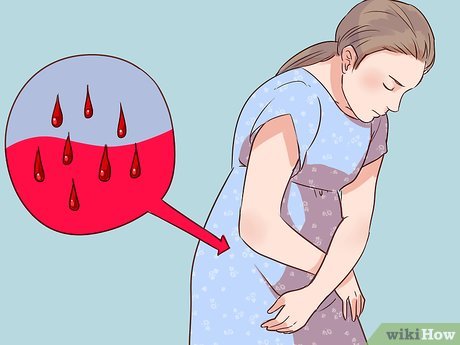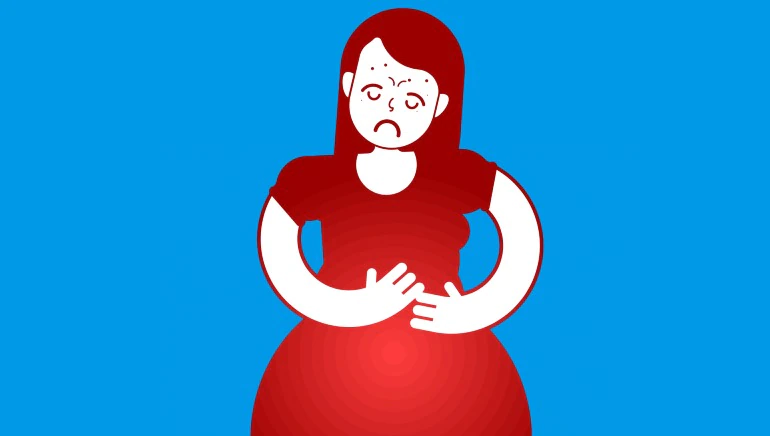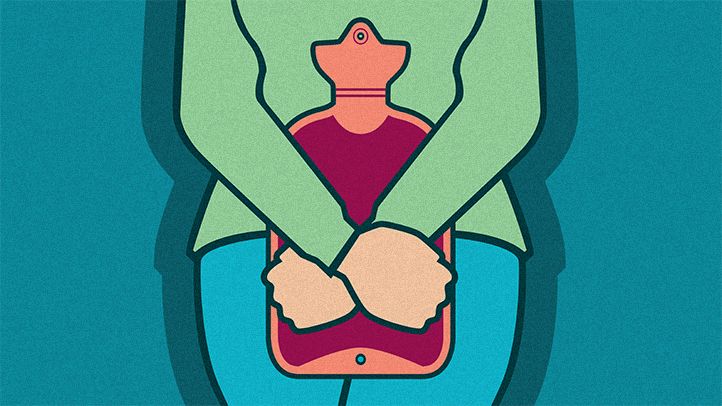All You Need To Know About Non-Menstrual Vaginal Bleeding
What is Vaginal Bleeding?
To start off, any expulsion of blood from the vagina is known as vaginal bleeding. Vaginal bleeding is a normal part of the menstruation cycle. However, when bleeding occurs outside of what the medical community considers the “norm,” it may be a sign of an underlying health concern that needs to be diagnosed and treated by your doctor.
Normal vaginal bleeding is the menstrual cycle menstruators go through on a monthly basis. To be considered abnormal, the vaginal bleeding occurs outside of a normal menstruation guideline. This can mean that the flow during the period is excessively heavy or there is spotting between periods. Abnormal vaginal bleeding or spotting can also occur in very young menstruators before they’ve entered menstruation (menarche) and it can also occur after menopause When not taken seriously , it can result in the development of certain medical conditions.

Symptoms of Vaginal Bleeding
- Menorrhagia– It is the medical term for menstrual periods with abnormally heavy or prolonged bleeding. With menorrhagia, you can’t maintain your usual activities when you have your period because you have a lot of blood loss and cramping.
- Bleeding after sex– Bleeding during or after sex could occur due to a lot of reasons, such as vaginal dryness, dehydration, aggressive intercourse, sex without the use of lubricants, immune conditions, inflammation, anxiety or reluctance around intercourse and intimacy, exposure to irritant chemicals or allergens, vaginal or uterine infections are some to be named.
- Spotting – Spotting refers to any uterine or vaginal bleeding that occurs outside the menstrual period. Spotting after sex can also be a sign of an STD like chlamydia or gonorrhea.
- Abnormally long menstrual cycles – Underlying health conditions that can cause long periods include uterine fibroids, endometrial (uterine) polyps, adenomyosis, or more rarely, a precancerous or cancerous lesion of the uterus.

Causes of Vaginal Bleeding
There are various reasons why vaginal bleeding occurs. They are as followed-
- Reproductive and sexual health related reasons
This includes-
- Polycystic Ovarian Syndrome (PCOS)– It is a hormonal disorder common among individuals of reproductive age. Menstruators with PCOS may have infrequent or prolonged menstrual periods or excess male hormone (androgen) levels.
- Postcoital bleeding– Vaginal bleeding after sexual intercourse is also called postcoital bleeding and can be caused by cervical inflammation (cervicitis).
- Pregnancy- There are a lot of cases of vaginal bleeding during normal pregnancies. Certain exceptional cases related to pregnancy which can cause vaginal bleeding are-
Ectopic pregnancy– Occurs when a fertilized egg implants and grows outside the main cavity of the uterus.
Miscarriage– A spontaneous loss of pregnancy.
Perimenopause– Commonly known as “Around menopause”, it refers to the time during which your body makes the natural transition to menopause, marking the end of the reproductive years.
Vaginal atrophy– It is a condition where the vaginal walls becomes thin, dry and become inflamed, often after menopause.
- Some STDs and other infections
This includes-
- Chlamydia
- Gonorrhea
- Pelvic Inflammatory Disease (PID)
- Urea plasma vaginitis
- Bacterial vaginosis
- Certain Medical Conditions
This includes-
- Different types of cancers– This includes Cervical cancer, Endometrial cancer, Ovarian cancer, Uterine Sarcoma, Vaginal cancer
- Uterus related conditions-These includes Uterine fibroids, Uterine polyps,
Uterine adenomyosis
- Other medical conditions-These include Celiac disease, Kidney or liver disease, Hyperthyroidism (overactive thyroid), Hypothyroidism (underactive thyroid).
- Usage of external devices
This includes-
- Over-used tampons– When a tampon or another object isn’t removed, it allows for bacteria to attach to it and multiply. In the beginning this causes very unpleasant smelling discharge, later it can cause much more serious symptoms like vaginal bleeding, fever etc.
- An intrauterine device (IUD)- An IUD can sometimes become displaced. If this happens, and the IUD moves partially out of the cervix or into the vagina, a person could experience some bleeding after sex.
- Certain Physical Trauma or Pressure
This includes-
1.Blunt force trauma injury to the vagina or cervix
2.Penetrating injury to the vagina or cervix
3.Sexual abuse
4.Extreme amount of stress
5. Diabetes
6. Significant weight gain or loss

Treatment for Vaginal Bleeding
While many forms of vaginal bleeding are normal and do not require treatment, there are other forms which require medical attention from a gynecologist. Here are some ways to treat Vaginal bleeding-
1. Hormonal Management– These hormonal medications include birth control pills such as medroxyprogesterone acetate and conjugated equine estrogen.
2. Long term treatments– It includes hormonal IUD insertion, progestin pills or progestin shots (Depo-Provera), and NSAIDs such as ibuprofen.
3. Surgical methods– This can also be taken into consideration when the bleeding is severe or if there are reasons patients cannot take the hormonal medications. This includes dilation & curettage, endometrial ablation, and hysterectomy (removal of the uterus).

Precautionary measures to be taken-
1. Get an annual pelvic health examination conducted– During a pelvic exam, a doctor evaluates your reproductive organs. A pelvic exam usually lasts only a few minutes. Your doctor checks your vulva, vagina, cervix, ovaries, uterus, rectum and pelvis for any abnormalities. A Pap test, which screens for cervical cancer, is often performed during a pelvic exam.
2. Have safe sex, use proper lubricants and contraception– Practicing safe sexual activity using methods or devices (such as condoms) to reduce not just abnormal vaginal bleeding but also, reducing the risk of transmitting or acquiring sexually transmitted infections.
3. Exercise– Certain exercises help keep the vagina healthy, this includes kegels, squats, vaginal weightlifting, chinese balls etc.
4. Eat healthy and nutritious food– Apart from helping in avoiding vaginal bleeding, a healthy diet can help you avoid yeast infections, vaginal dryness, urinary tract infections, and even menstrual cramps.
5. If required, take supplements as well.- Supplements include-
- Probiotics– for avoiding yeast infections, for maintaining pH balance, decreases inflammation, reduces anxiety, depression.
- Omega-3 Fatty Acids– to improve blood flow, circulation and heart health.
- Sea Buckthorn Oil– for vaginal dryness

Conclusion-
Non-menstrual vaginal bleeding is still a topic less discussed. It is important to be aware of it. Individuals must know about the different symptoms, causes,treatment and precautions about vaginal bleeding. To begin with, individuals can self diagnose themselves.You can also ask professionals for proper guidance and consultation.Reach out to the hospital if you see yourself going through the symptoms.There are many causes for this to occur and it’s fine for one to not know about all this. Everyday is a new day, one should always be open to learning new things. Keeping our vagina healthy , clean and disease free is important and it is our duty to do so. Eating healthy , nutritious food, exercising on a regular basis are one of the many ways to keep our vagina healthy.
Cover Illustration: Curejoy
Author

